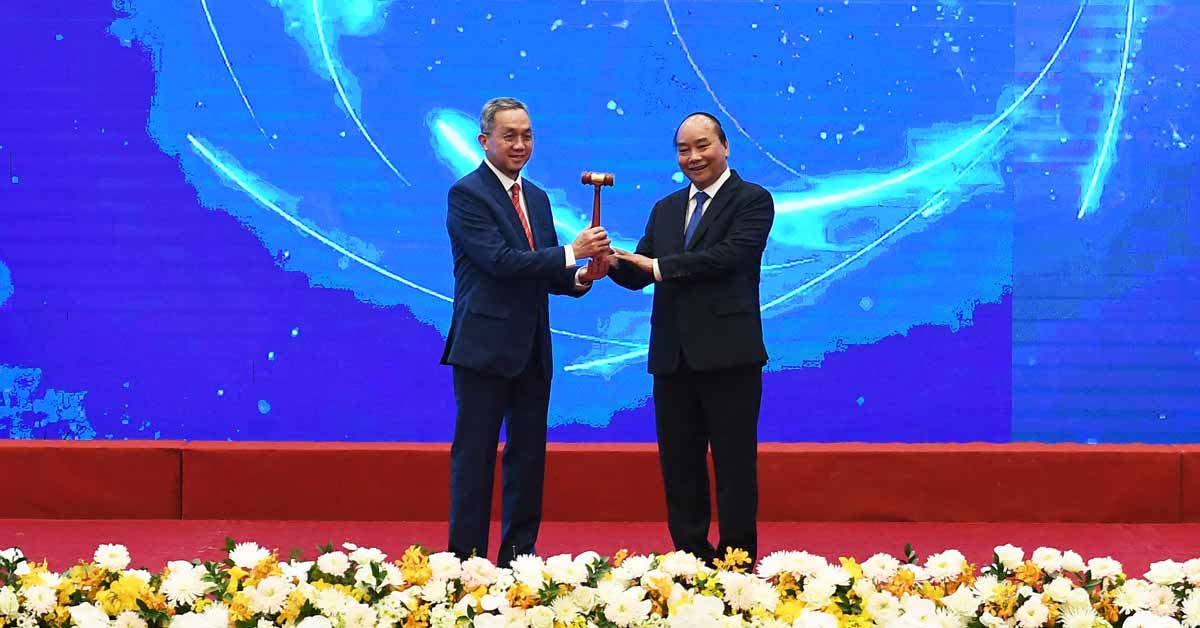Lately there has been some good news on advancing the social dimension of ASEAN, and Brunei, the current chair of the bloc, deserves praise for this.
The joint statement that the 25th ASEAN Socio-Cultural Community Council (ASCC) released at the end of its meeting on 31 March contains some interesting and encouraging outcomes that focus on youth empowerment and a stronger sense of regional belonging.
Among the decisions, of which the details have yet to be shared, are the promotion of volunteerism and the creation of new plans to establish the ASEAN Climate Change Centre and to create the Comprehensive Framework on Care Economy, the latter of which appears promising at least in name, and more coordination on disaster relief and management through the Strategic and Holistic Initiative to Link ASEAN Responses to Emergencies and Disasters (ASEAN SHIELD).
With proper follow-up and implementation, these new initiatives could potentially create better opportunities for a bloc that aims to meet the aspirations and dreams of its youth and help create new opportunities for building a common destiny for them.
Myanmar Crisis
But the problem is that right now, ASEAN is not really experiencing its best moments. Here, I am not only referring to the ongoing pandemic and the ensuing crippling effects it has had on people’s lives.
With massacres happening on a daily basis in Myanmar, these are not normal days for ASEAN, and the ongoing crisis in that country is, without a doubt, the most defining and serious challenge to face the bloc in recent times.
So far ASEAN’s response has been disappointing to say the least, with member nations being highly divided. There’s also a lack of leadership on the part of this year’s chair, Brunei to bring the “autocratic” club within ASEAN on board to ensure a stronger, united position against the junta in Myanmar.
It is a stalemate and sadly, no one really knows how much more blood will be spilled on the streets of Yangon, Mandalay and other Myanmar cities before ASEAN comes up with resolute condemnation and boycott of the military that is now unconstitutionally in power in that nation.
Despite the bloc not lacking in strategy and vision documents regarding its future, what is missing is a serious effort for stronger integration, which is unsurprising given the structural differences between some of its members.
On one side are the authoritarian states led by Cambodia, Vietnam, Brunei, Lao and unfortunately Thailand, and on the other side are the “democrats” Indonesia and Malaysia running a sparse pack, but with some encouraging signs that Singapore will join them as it matures toward a more sound and fair democracy.
While it is unthinkable to imagine dismantling ASEAN as an institution, its relevance will come into question and its more ambitious plans, including a more united common market and shared economy, will evolve slowly and passively without much ambition in the absence of the needed political will and the right tools.
In short, there will be meetings, joint declarations and new initiatives that will never be truly transformative. The citizens of member states will continue to show neither enthusiasm nor excitement for the bloc if their lives continue as they do now, without much care for what ASEAN plans or does.
An ASEAN Trilateral?
Yet there is another option for those member states willing to push the regional agenda more ambitiously with principled and value-based leadership and without dodging key existential questions like respect for democracy and human rights.
The states of the democratic camp within ASEAN could forge a new understanding among themselves, elevate their cooperation to much higher levels, come up with new initiatives that, while autonomous and independent from the ASEAN institutional framework, might also give the bloc a much-needed jolt in the end.
Indonesia, Malaysia and Singapore, and perhaps one day, a more democratic Thailand with a different government in power, should forge a future-forward partnership framework to advance their national and regional interests from a shared perspective; one that is founded on the rule of law anchored in democratic and human rights principles.
This could be a new trilateral in which the leaders of these three nations can put aside the relatively minor hindrances now affecting their relationships and push forward a different vision of regional integration.
Proposing this new strategic partnership between Indonesia, Malaysia and Singapore is not about abandoning the foundational ties that led to the ASEAN of today, but rather about pushing ahead in a selective and strategic fashion to show others what can be achieved with the right vision and political will.
This trilateral arrangement will complement what is happening within formal ASEAN mechanisms, and it will definitely require a much bigger effort in terms of the resources that must be invested.
Many might be baffled by this proposal, but what is happening now in Myanmar and more specifically, what is not happening within ASEAN now, should provide some impetus for an audacious reimagining of the meaning of regional integration in Southeast Asia.
This article was first featured on 8 April, 2021 in The Jakarta Post.
Related Articles:
